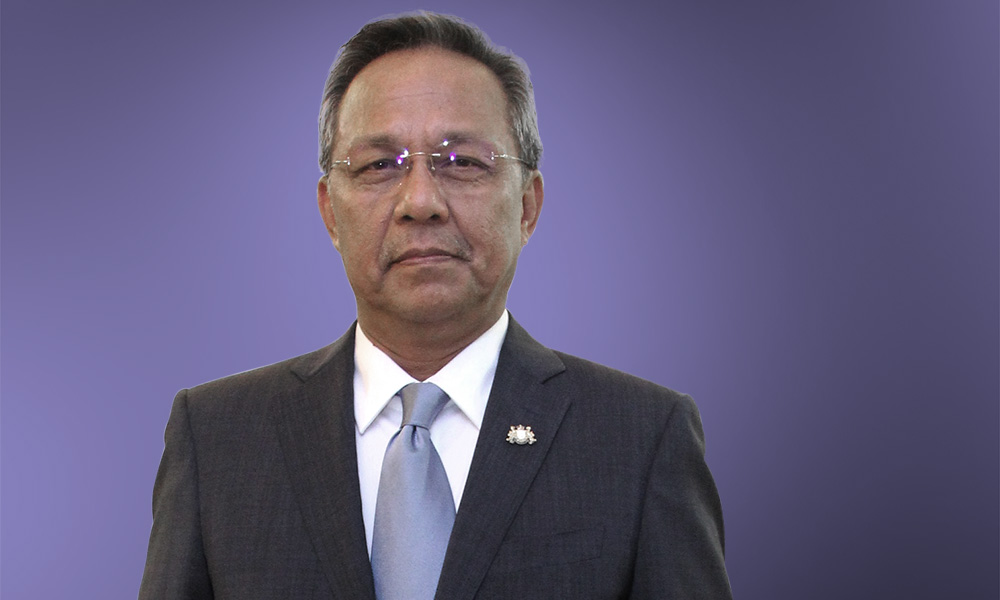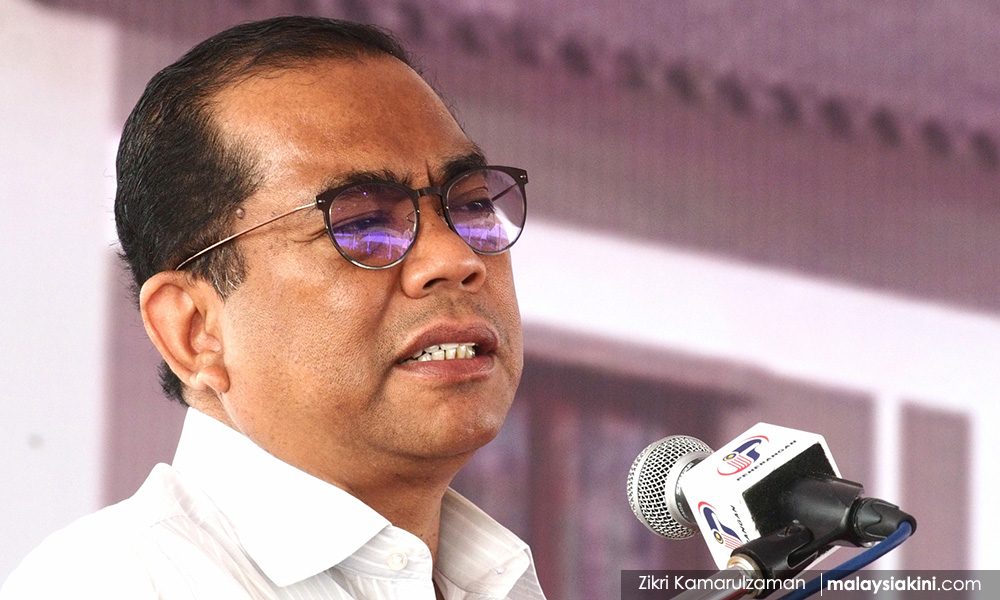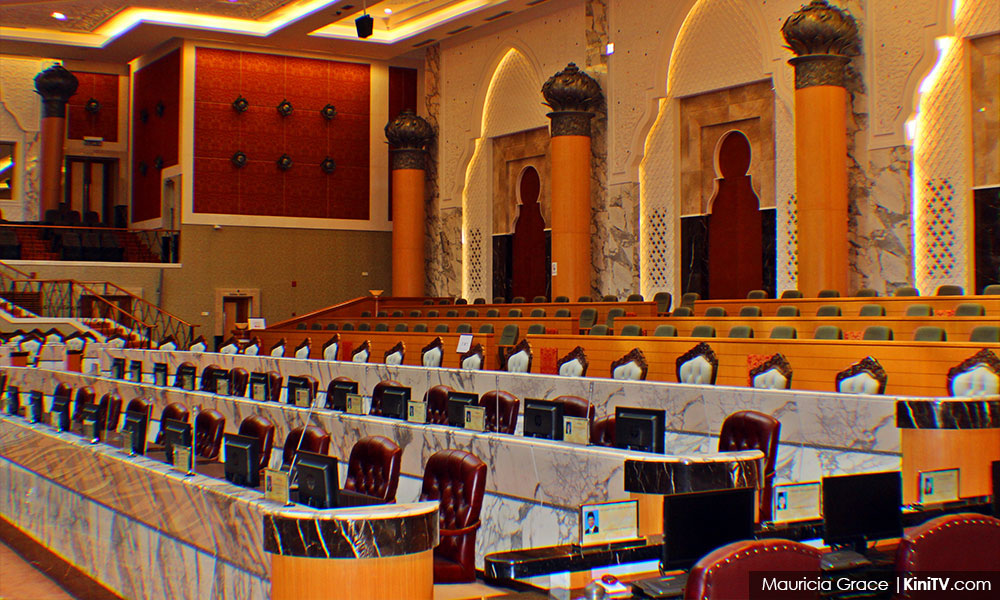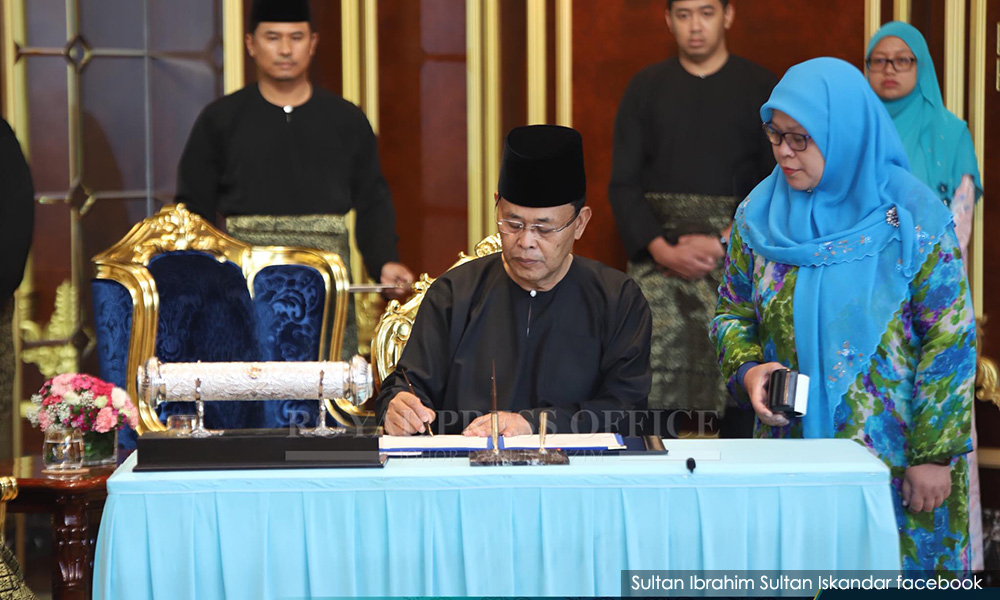
INTERVIEW | On the night of historic May 9 polls, Umno became not just the federal opposition, but also in the states it previously held – Kedah, Perak, Negeri Sembilan, Malacca, Johor, Terengganu, and eventually Sabah.
While most Umno leaders were in disarray, Johor Umno chief Mohamed Khaled Nordin quickly recognised the new reality.
The then-menteri besar asked one of the elected senior assemblypersons Hasni Mohammad to be prepared to take up the mantle of state opposition leader as quickly as six hours after polling ended.
The next day, Khaled conceded defeat and promised a peaceful transition of power.
By that time, unofficial results came pouring in, all declaring Umno and BN were trailing far behind. Khaled himself was not able to defend the state seat of Permas and parliament seat of Pasir Gudang.
In an interview with Malaysiakini, Hasni recalled the fateful night.
“At 11pm, he (Khaled) called me and said: 'We are going lose the state.' But we are still waiting for some of the results.
“But he reiterated: 'We are left far behind. No way we can catch up. Looks like we are going to lose the state. You better prepare yourself to become opposition leader.'”
As one of the few survivors left standing after the ‘Malaysian tsunami’, Hasni said he was selected based on seniority among elected Johor assemblypersons.

Besides Khaled (photo), many senior leaders had fallen, including former Johor excos Md Jais Sarday and Ayub Rahmat.
Hasni was officially announced as state opposition leader, after meeting with the Johor Umno liaison committee.
‘Might as well start working’
Joining Pontian Umno in 1989, Hasni rose to Johor youth chief nine years later, before becoming political secretary to then youth minister Hishammuddin Hussein. He left the position after being elected as Pontian MP in the 2004 election.
Later, he turned to contest and won Benut, a state seat under Pontian. He was state exco in charge of works and rural areas under Khaled's cabinet from 2013 to 2018. He is also the Pontian Umno chief, a position he has held since 2001.
Asked why Johor Umno was so quick and decisive in naming the state opposition leader, Hasni said this is a move to respect the people's will.
“It is all about the interest of people... I would say electorate already decided that in the state of Johor, BN is the opposition.
“We accept the fact that people have made their choice, we might as well start working.
“Why must we waste time (on accepting the reality of being the opposition). I don't think that issue of whether you can or can't, are able or not able to function as opposition leader arises.”

Hasni also said that he is willing to take up the position of state public accounts committee chief should the Harapan government amend the standing orders to reserve the role of PAC chief for the state opposition leader.
“I don't see it as recognising good work by the government. If they do a good job, then good for the people,” he said in response to a question on whether Johor Umno may not take up the role of PAC chief, like their counterparts in Selangor had done before.
After the 2013 polls, the Selangor legislative assembly passed an amendment to the standing orders by requiring opposition leader to be made the PAC chief to perform a check-and-balance on the government.
But then-Selangor opposition leader Mohd Shamsudin Lias refused to take up the post and subsequently resigned, leaving the position of opposition leader vacant till the end of the assembly mandate.
‘A new decade’
Talking about his future plan as opposition leader, Hasni said the previous BN administration had a sound financial record, and the Dekad Baru (New Decade) blueprint for the state in the next ten years.
As such, he noted that he would try to incorporate certain ideas from this blueprint into current Harapan administration.

“We have more or less achieved that. Even current menteri besar (Osman Sapian) admits that our financial position is strong, we don't have any borrowings.
“Therefore, it's not too difficult to be an opposition. Johor achieved so much under BN.”
Aside from that, Hasni wishes to perform a typical check-and-balance function on the current Harapan state government, beginning with questioning the rationale behind making the first 10 cubic meters of water free to public.
“If they want to give 10 cubic meters of free water to the public, I will ask for a justification... In the past, we also managed to give water rebate to low-income families. You should educate people to use water wisely.
“We are using 210 litres per day when country like Singapore only use 150. Why must we take water for granted?”


No comments:
Post a Comment
Note: Only a member of this blog may post a comment.